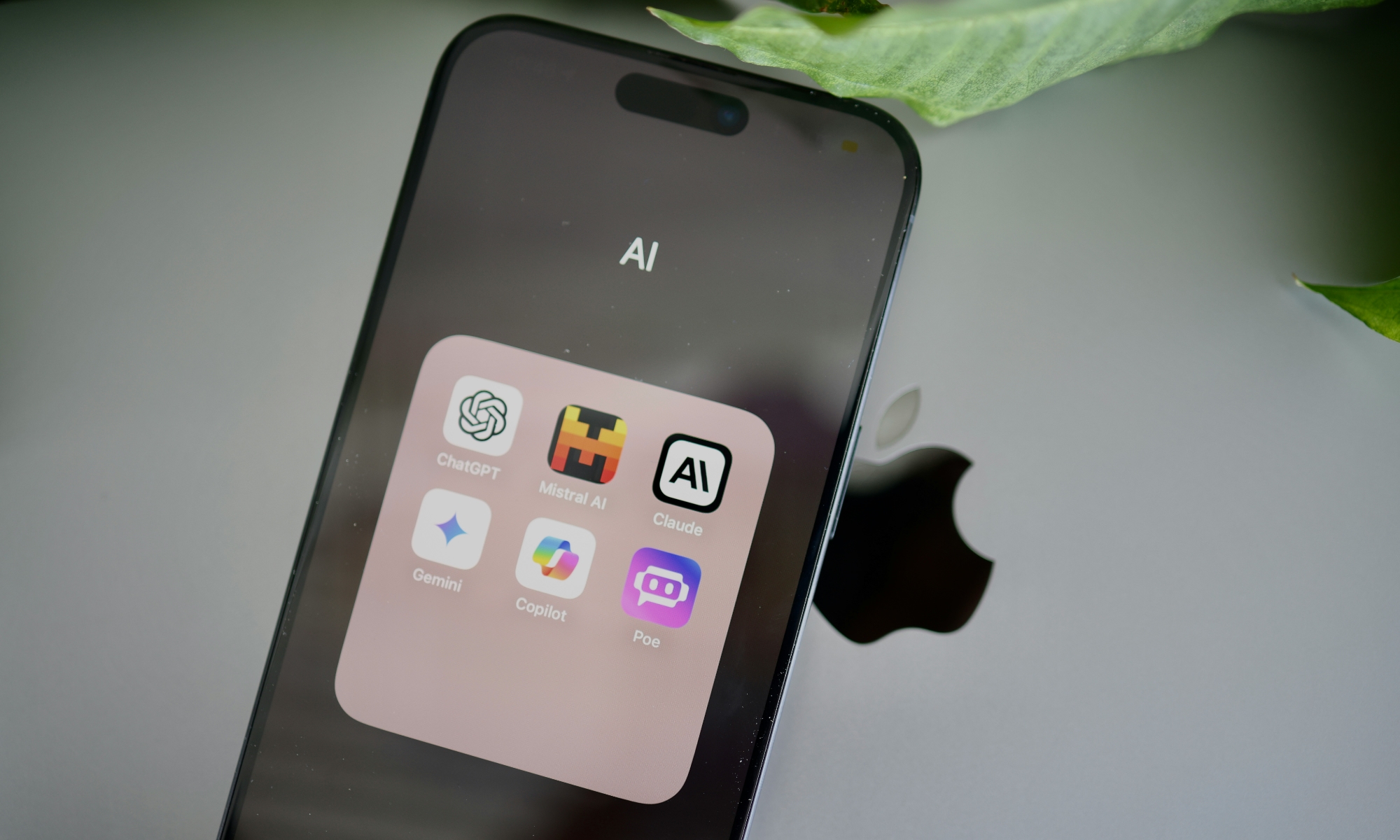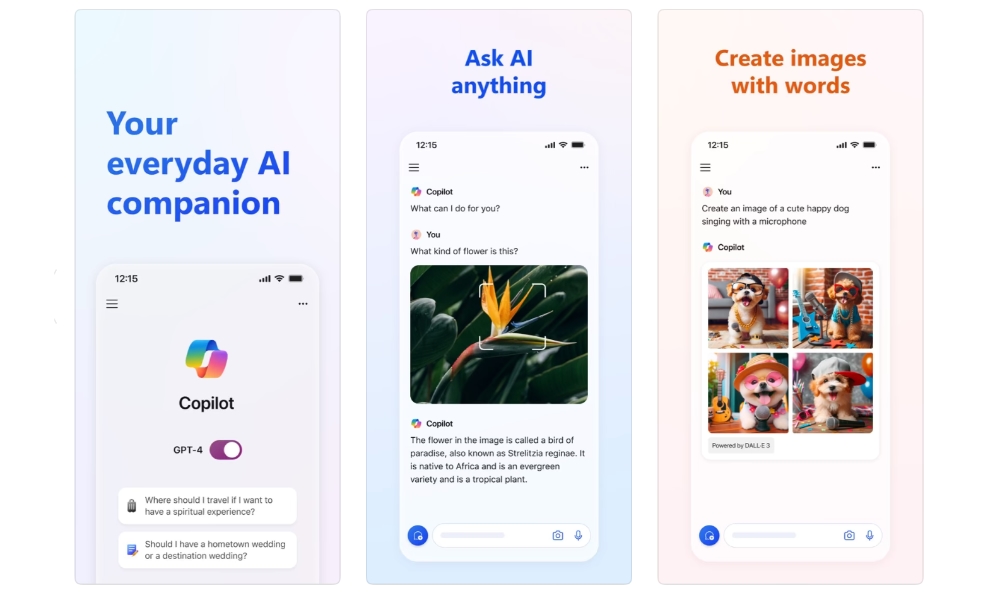The AI Chatbot Battle Is Heating Up
 Credit: Solen Feyissa
Credit: Solen Feyissa
Toggle Dark Mode
The chatbot app arena for Mac users is getting more crowded, as more companies that have dabbled in the tech begin breaking their integrated chatbots out into standalone apps.
While AI chatbot apps have been par for the course on the iPhone, for desktop users they started exclusively on the web. OpenAI changed that last year when it released a desktop version of ChatGPT. Now, it looks like Microsoft is following suit with Copilot, while Meta has its own standalone AI app waiting in the wings. Google is sticking to a web-based version of Gemini, but that’s unsurprising for a company with no Mac apps other than Chrome (although that could arguably be considered Google’s Gemini app for Mac).
Microsoft’s Copilot technically began as part of Bing chat in February 2023. It was leveraging ChatGPT back then through its partnership with OpenAI, making it little different from what would ultimately become the ChatGPT app in those early days. What began as a limited preview was opened up in May, and by September Apple had rebranded it as “Microsoft Copilot” and begun integrating it into the core Microsoft 365 experience, including apps like Word, Excel, and Powerpoint.
Throughout 2024, Microsoft focused on integrating it more tightly into Windows, going so far as to add a dedicated Copilot key for Windows keyboards. That strategy wasn’t unlike the approach Apple would later use in baking Apple Intelligence into the iPhone, iPad, and Mac (it’s probably not a coincidence that Apple’s software chief, Craig Federighi, was reportedly inspired by Copilot).
While Copilot was also available on the web, the service felt largely like a chatbot specifically for Microsoft 365 users. It initially focused on enterprise features before overhauling it to make it more suited for personal use in October.
As a result, Copilot garnered little interest for most of us in the Apple ecosystem. However, Microsoft recently began rolling out Copilot mobile apps for Android and iOS, and this week it’s announced a new standalone app for Mac users.
The native Copilot macOS app is available from the App Store as a free download and requires an M1 Mac with macOS 14 Sonoma or later. It works much as you’d expect, although it probably won’t unseat the more established ChatGPT unless someone already lives in the Microsoft 365 world.
As with ChatGPT and Gemini, Copilot is free to use, but there’s also a $20 Copilot Pro subscription that provides priority access to the latest models and tighter integration with Microsoft 365 apps.
One of the unique things about Copilot is that Microsoft is trying to spread the wealth around a bit across multiple large language models (LLMs). While it started with OpenAI’s ChatGPT, and still uses GPT-4 as a key component, it also calls upon Anthropic’s Claude and Google’s Gemini LLM through an “orchestration layer” that intelligently directs tasks to the most appropriate LLM for their request. Microsoft also has its own in-house LLM, Prometheus, that’s used for some tasks.
Apple Intelligence still only ties in with ChatGPT, so if you want to use Microsoft Copilot you’ll need to install and call up the app manually. However, Apple has made it clear that its OpenAI partnership is only the start, and it’s always planned to add support for other AI models down the road. There’s already evidence it’s working to bring Gemini into the tent, and it wouldn’t be surprising to see Copilot on the list someday.
Meta Joins the Fray
Meanwhile, CNBC reports that Facebook’s parent company Meta is also preparing to spin its chatbot out into its own standalone app.
Meta AI launched in September 2023 within apps like Facebook and Messenger. It was initially an optional tool you had to go looking for, but in April it was moved to the default search for Facebook, Instagram, Messenger, and even WhatsApp.
As popular as those apps are, Meta knows that its AI chatbot won’t reach world domination status unless it turns it loose, so that’s precisely what it’s planning to do. CEO Mark Zuckerberg has repeatedly stated that he plans to make his company the leader in artificial intelligence by the end of 2025, leaving ChatGPT and Google in the dust as Meta AI takes over.
In response, OpenAI CEO Sam Altman facetiously threatened to “do a social app.”
“This is going to be the year when a highly intelligent and personalized AI assistant reaches more than 1 billion people, and I expect Meta AI to be that leading AI assistant,” Zuckerberg told analysts and investors in January.
Alongside the Meta AI app, the company also plans to explore a paid subscription service similar to how other chatbots work. However, the company’s CFO, Susan Li, also told analysts that, in addition to a “premium offering,” the company also sees ways to monetize the chatbot through “paid recommendations.”
The company boasts that it now has roughly 700 million active monthly users for its AI, but analysts feel that those numbers are being bolstered by conflating them with everyday search requests in Meta’s core apps. The standalone Meta AI website gets a mere 10 million views per month. That’s “far below the major services (ChatGPT, Gemini, etc) and even lower than some mid-range players like Anthropic,” according to what David Curry, the data editor for insights firm Business of Apps, told CNBC.
ChatGPT still tops the list of the most downloaded AI chatbot apps on the App Store, followed closely by Google Gemini. ByteDance’s Doubao and Microsoft’s Copilot come in farther down in third and fourth places, respectively.









